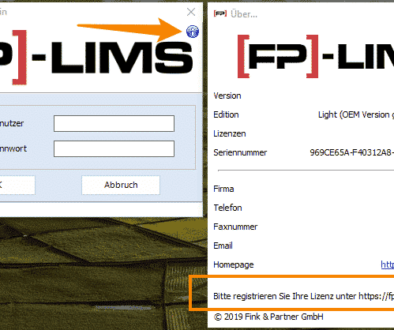
LIMS selection criteria: Department requirements at a glance
A LIMS, or Laboratory Information Management System, is a software application designed to support the management of laboratory data. LIMS provide a centralized location to store and access data and offer features such as data entry, validation, workflow management, and reporting. LIMS are used in a variety of industries, including automotive manufacturing, metal fabrication, mining and surface mining, environmental testing, and public utilities and construction.
LIMS offer many advantages over traditional paper-based systems or spreadsheet-based solutions. LIMS can improve data quality by providing built-in rules for data entry and validation. They can also increase efficiency by automating tasks such as sample tracking and results reporting. In addition, LIMS provide greater flexibility in terms of organization and access to data.
Which criteria are fundamentally important when procuring a LIMS?
There are many off-the-shelf solutions in the LIMS industry, this type of software structure comes with some disadvantages that include lack of flexibility and adaptability. Good LIMS software does not force you to adjust your workflow in order for the software to work effectively, good LIMS software adapts and evolves with your current processes.
However, the most important point when choosing a LIMS is that the solution you select meets the needs of your departments. For this reason, we have summarized below a small summary of the most important requirements from different departments. These requirements may vary in your weighting or other requirements may be added, so before selecting a LIMS software, we recommend that you discuss with employees of your departments to find a satisfactory solution for all departments.
LIMS selection criteria of quality management
Data accuracy, completeness and integrity are decisive criteria for quality management that a LIMS must guarantee. In addition, the LIMS should offer comprehensive and automated evaluation of the analyses, which makes it possible for your employees to quickly recognize trends, patterns and quality violations and to initiate appropriate reaction measures. To ensure that these measures can also be implemented at short notice, the LIMS must offer the possibility of fast and efficient communication between departments. Eliminating sources of error is an important task of quality management, make it easier for them by allowing the new LIMS to trace all laboratory or production processes and enable effective troubleshooting. The biggest enemy of quality management is the human being, therefore reduce human errors to a minimum.
![Laboratory software quality manager - [FP]-LIMS software Laboratory software quality manager - [FP]-LIMS software](https://blog.fp-lims.com/wp-content/uploads/2024/01/Laboratory-software-quality-manager-FP-LIMS-software.jpg)
![Laboratory software - Laboratory staff - [FP]-LIMS software Laboratory software - Laboratory staff - [FP]-LIMS software](https://blog.fp-lims.com/wp-content/uploads/2024/01/Laboratory-software-Laboratory-staff-FP-LIMS-software.jpg)
LIMS selection criteria of lab employees
The reduction of human errors is also reflected in a requirement from laboratory staff. Your new LIMS should allow automatic data entry into the LIMS, this is done through interfaces that transfer your data from the measuring instruments directly into the central database – human errors were once upon a time. A good LIMS also offers you the possibility to reduce your documentation effort enormously, so your employees can fully concentrate on more valuable tasks. In the best case, these tasks can be assigned and projects organized by the LIMS. In addition, the LIMS should help to generate precise and reproducible results, so that it can do this, the LIMS must be fast and, above all, reliable at all times.
LIMS selection criteria of CEOs
A LIMS can also provide some important benefits to a company’s executive staff. Make sure the LIMS provides valuable information that enables the CEO to make data-driven decisions. However, the information for these decisions often does not only come from the LIMS, but also involves other systems, therefore it is often important that the LIMS can also be connected to these systems, such as ERP, MES or PPS, this can significantly facilitate the daily work, not only for the CEO.
Save costs in reducing documentation effort and material waste, through automated processes and faster communication, as well as quick problem detection. Increase the quality of your products in the long run so that you can achieve higher sales, the LIMS of your choice should bring this goal within reach.
![Lab software - CEO management - [FP]-LIMS-Software Lab software - CEO management - [FP]-LIMS-Software](https://blog.fp-lims.com/wp-content/uploads/2024/01/Lab-software-CEO-management-FP-LIMS-Software.jpg)
Other criteria that your new LIMS software should meet:
As already mentioned, a LIMS should adapt to your requirements and evolve with your processes, because changes are a normal occurrence in any industry. Modular software is perfectly suited for this, as it combines high adaptability, flexibility and enormous performance and always offers the potential for expansion.
You should also not skimp on the topic of data security, because cyber attacks have long ceased to be a problem that only affects large companies. On the contrary, a majority of cyberattacks today affect small to medium-sized businesses, some of which are completely unprepared for them, so don’t make the same mistake with your most valuable data. Prepare yourself, with LIMS software that stores your data securely, providing a permanently hassle-free workday.
Quality LIMS software isn’t free, of course, but there are definitely affordable solutions on the market – like [FP]-LIMS. Arrange a free demo appointment now to learn more about our software!


